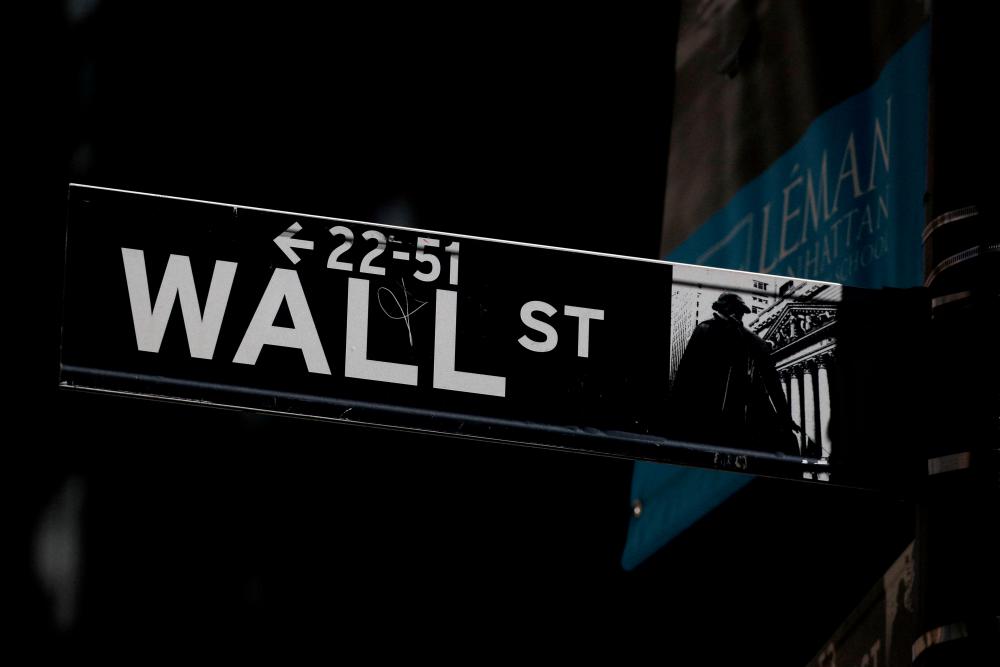NEW YORK: Wall Street stocks suffered another ugly rout on Thursday (Sept 29) as US bond yields resumed their upward climb on a bruising day for shares of Apple and other tech giants.
Thursday's economic reports included data showing a drop in weekly US jobless claims that point to a strong labor market likely to keep the Federal Reserve focused on its current policy of countering inflation.
“Risky assets don’t stand a chance of a meaningful rally if the economy continues to show resilience while inflation continues to be significantly above the Fed’s funds rate,” said Oanda’s Edward Moya.
The broad-based S&P 500 dropped 2.1% to 3,640.47, its lowest close since November 2020.
The Dow Jones Industrial Average lost 1.5% to 29,225.61, while the tech-rich Nasdaq Composite Index tumbled 2.8% to 10,737.51.
FHN Financial's Chris Low said investors were also unnerved by market volatility in Britain after Prime Minister Liz Truss doubled down on a controversial tax cut policy that has rattled markets.
Investors fear a “contagion” beyond Britain in response to the policy proposal, Low said, noting the Truss plan contradicts the efforts of central banks to counter inflation and has been criticized by the International Monetary Fund.
Shares of large technology companies were under pressure after a downgrade of Apple by Bank of America based on expectations of slower growth.
Apple dropped nearly 5% and Facebook parent Meta lost 3.7%, while Tesla sank 6.8%.
A sell-off in U.S. Treasuries resumed as Fed officials gave no indication the U.S. central bank would moderate or change its plans to aggressively raise interest rates to bring down high inflation.
Cleveland Fed President Loretta Mester said she does not see distress in U.S. financial markets that would alter the central bank's campaign to lower inflation through rate hikes that have taken the Fed funds rate to a range of 3.0% to 3.25%.
Data showed the number of Americans filing new claims for unemployment benefits fell to a five-month low last week as the labor market remains resilient despite the Fed's aggressive interest rate hikes.
“Good news is bad news in that today’s job number again reiterates that the Fed has a long way to go,“ said Phil Blancato, head of Ladenburg Thalmann Asset Management in New York. “The fear in the marketplace is that the Fed is going to push us into a very deep recession, which will cause an earnings recession, which is why the market is selling off.”
The most traded stock in the S&P 500 was Tesla Inc, with $20.8 billion worth of shares exchanged during the session. The shares declined 6.8%.
The yields on many Treasuries, which are considered virtually risk-free if held to maturity, now dwarf the S&P 500's dividend yield, which recently stood at about 1.8%, according to Refinitiv Datastream.
Volume on U.S. exchanges was relatively heavy, with 11.6 billion shares traded, compared with an average of 11.4 billion shares over the previous 20 sessions.
All 11 S&P 500 sector indexes declined, led lower by utilities, down 4.06%, followed by a 3.37% loss in consumer discretionary.
Declining stocks outnumbered rising ones within the S&P 500 by an 11.6-to-1 ratio.
Meta Platforms ended down 3.7% after Bloomberg reported the Facebook owner froze hiring and warned employees of more downsizing to come.
CarMax Inc slumped nearly 25% after the used-car retailer missed expectations for second-quarter results, hurt by consumers cutting spending amid inflation, rising interest rates and higher car prices.
General Motors Co and Ford Motor Co fell more than 5% each.
Airline carriers and cruise operators fell on canceled or delayed trips after Hurricane Ian hit Florida's Gulf Coast with catastrophic force.
American Airlines, United Airlines Holdings and Delta Air Lines each lost more than 2%.
Cruise ship operators Norwegian Cruise Line Holdings Ltd dropped 5.3% and Carnival Corp fell 6.8%.
The S&P 500 posted no new highs and 106 new lows; the Nasdaq recorded 14 new highs and 518 new lows. - Reuters













